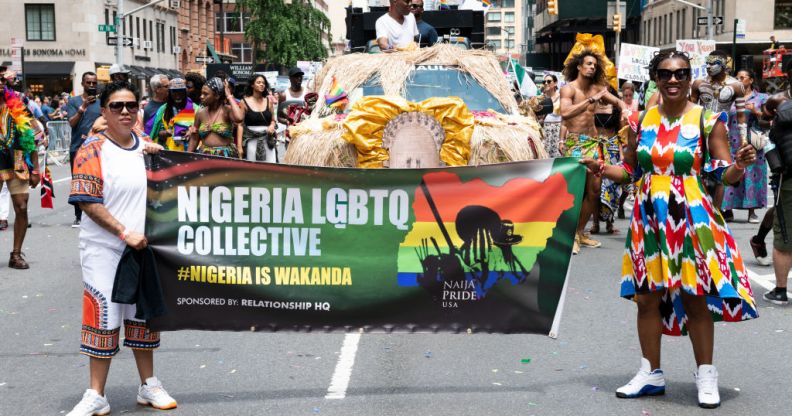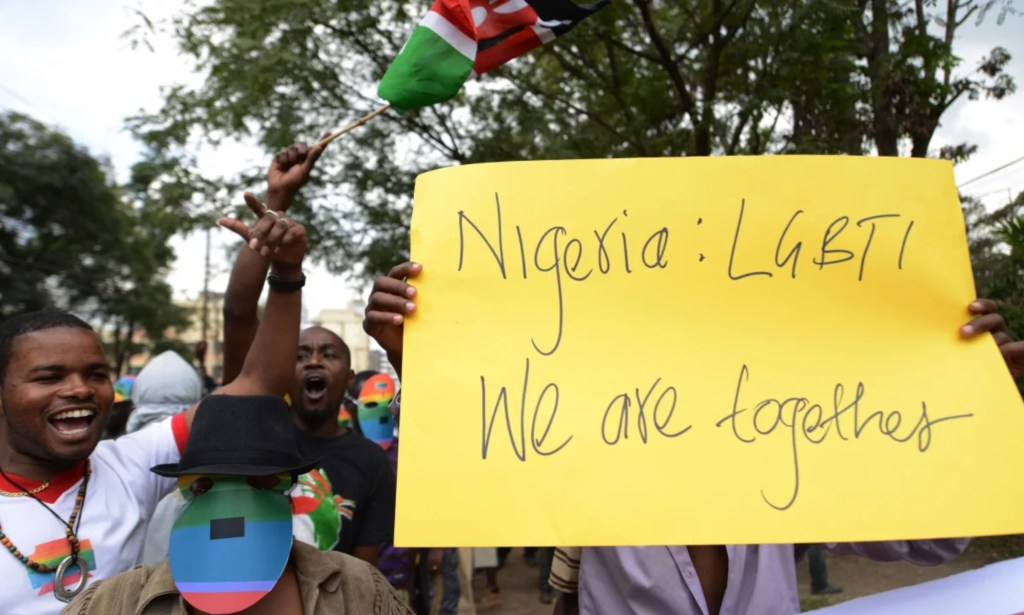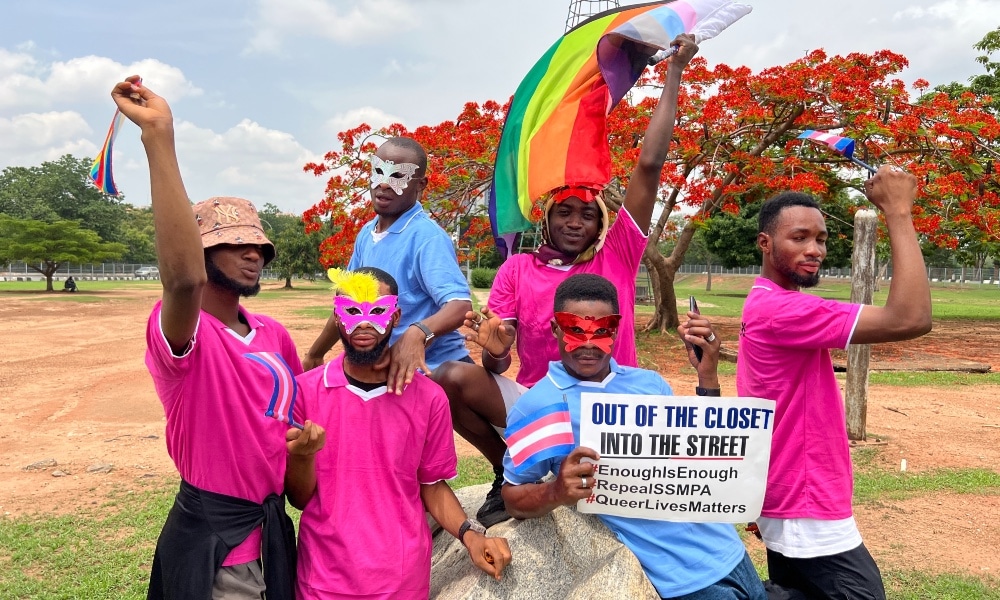Nigeria: Paramilitary arrest 76 suspects at birthday party for gay people

Nigerian paramilitaries have arrested over 70 party attendees. (Michael Brochstein/SOPA Images/LightRocket via Getty)
Nigeria’s paramilitary has arrested 76 people for attending a birthday party for gay people, which they believe was going to double up as a same-sex wedding.
Like most countries in Africa, Nigeria enforces a number of anti-gay laws. It outlaws homosexuality, which is punishable with up to 14 years in prison, or 10 years for accomplices.
Under sharia law in northern Nigeria, homosexuality is punishable by death – though such a sentence has never been enforced.

Gay marriage, same-sex relationships, and gay rights groups are also banned.
Commenting on this week’s arrest, Buhari Saad of Nigeria’s Security and Civil Defence Corps (NSCDC) explained that the agency had received a tip-off about a supposedly “gay party” in northern Nigeria’s Gombe state on Saturday (21 October) that was attended by “homosexuals and pimps.”
Saad noted, per Reuters, that 59 men have been arrested, 21 of whom confessed to being homosexual, and 17 women.
“We apprehended 76 suspected homosexuals … while holding a birthday party organised by one of them who was to wed his male bride at the event,” Saad stated.
A statement from the NSCDC said that they believed the organiser of the birthday party had planned to incorporate a wedding into the event and tie the knot with another man on the night.
The case is expected to be heard in Gombe state’s High Court this Tuesday (24 October).

This mass arrest comes shortly after Nigerian police raided a gay wedding last month in the country’s Delta state, arresting more than 200 people before prosecuting 69 suspects.
Those suspects were eventually released on bail, and have been ordered to sign a register once a month until their next hearing.
Following the initial arrest, authorities paraded the suspects before spectators and journalists.
Police spokesperson Bright Edafe told local media at the time: “We are bringing this out to the world to know, especially Nigerians, we are in Africa and we cannot copy the Western culture because we do not have the same structure and tradition.”
Amnesty International had condemned the arrests, describing them as a violation of “a range of human rights”, and a “witch hunt.”
Their statement read: “In a society where corruption is rampant, the law banning same-sex relationships is increasingly being used for harassment, extortion, and blackmail of people by law enforcement officers and other members of the public. This is unacceptable.”
How did this story make you feel?

